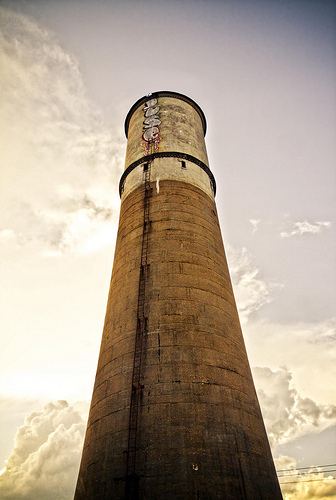Monday, a regional Italian court convicted six scientists and a government official of manslaughter for failing to adequately warn local residents prior to the 2009 L’Aquila earthquake that killed 309 people. Defendants have been sentenced to six years in prison and ordered to pay 7.8 million euros ($10.2 million) in damages and costs. In addition, all seven have been barred from ever holding public office again. Lawyers for the defense have said they will appeal the sentence.
Defendants include six scientists from the Italian National Institute of Geophysics and Volcanology and a government official from the Civil Protection Agency, all seven of whom were part of the National Commission for the Forecast and Prevention of Major Risks. The scientists are among the most prominent and internationally respected seismologists and geological experts in Italy.
On March 31, 2009, just one week before an April 6th earthquake devastated the region, the seven officials met to discuss a series of small earthquakes and tremors that had shaken the region for weeks. After that meeting, a memo was issued telling residents that an earthquake was “unlikely,” but not impossible. Some defendants issued encouraging statements to the local news media, and Bernardo de Bernardinis, former deputy director of the Department of Civil Protection, issued a public statement that there was “no danger,” stating, “the scientific community keeps saying the situation is favorable because of the continuous discharge of energy.” He reportedly told citizens to relax with a glass of wine.
Residents of L’Aquila claim the predictions and statements made by defendants convinced them to remain in their homes even as the tremors grew worse, when they would normally have fled. Prosecutors maintained these statements were falsely reassuring, and Judge Marco Billi, after four hours deliberation, determined that the scientists had provided “superficial and ineffective” assessments and disclosed “inaccurate, incomplete and contradictory” information about earthquake danger.
Defense attorneys argued that the defendants had used the best predictions available and accused the court of putting science itself on trial. 5,000 scientists from the American Association for the Advancement of Science (AAAS) signed an open letter to Italian President Giorgio Napolitano in support of the defendants, saying: “It is manifestly unfair for scientists to be criminally charged for failing to act on information that the international scientific community would consider inadequate as a basis for issuing a warning.”
In protest, the head of the National Commission for the Forecast and Prevention of Major Risks, Professor Luciano Maiani, resigned yesterday. “The situation created by yesterday’s sentence… is incompatible with running the commission’s work in a calm and efficient manner and with its role of giving high level advice to the organs of the state,” Maiani said in a statement. Maiani’s decision to quit was announced by the Italy’s Civil Protection Department, which said the commission’s vice-president, Mauro Rosi, and emeritus president Giuseppe Zamberletti had also tendered their resignations. Nature magazine has declared, “The verdict is perverse and the sentence ludicrous.”
More details on the L’Aquilo case can be found in news reports in the BBC, Telegraph, and New York Times.
Note: Reference to In re Katrina Canal Breaches
In his closing statement, prosecutor Fabio Picuti reportedly referred to a U.S. court decision that found the Army Corps of Engineers liable for “monumental negligence” resulting in some of the flooding from Hurricane Katrina (In re Katrina Canal Breaches). Picuti blamed the same “failure of initiative” to forecast the risks for L’Aquila. [For more commentary on the initial In re Katrina decision, see Director Michael Gerrard’s May 2012 article in the New York Law Journal.] Picuti does not appear to have noted that the Fifth Circuit reversed its position and issued a new decision Sep 24 2012. In its latest decision, the panel reversed itself on the discretionary function exemption issue. It found that the US Corps of Engineers’ failure to armor the Mississippi River Gulf Outlet (MRGO) or keep its sides from falling in were discretionary acts, and thus exempt from liability under the Federal Tort Claims Act. Based on that, it dismissed the lawsuit.
Update (1 Nov 2012)
On 30 October, Luciano Maiani announced that he had “suspended” his resignation after he received “some reassuring signals” from the government.
Text of the L’Aquila decision can be found here in Italian, and an unofficial translation can be read here in English.



